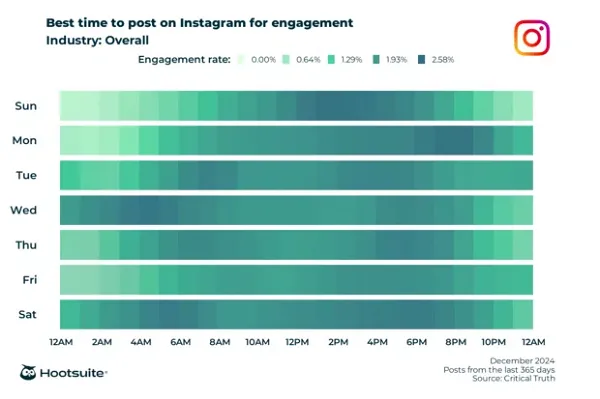Carving out your niche in the business world isn’t for the faint of heart. But after months and even years of planning, you’ve started to earn income as a new business owner. As an entrepreneur, you get the best of flexibility and earning potential plus some major financial responsibilities.
Understanding your unique financial opportunity is essential if you’ve recently struck out on your own or begun a side hustle. When you know the financial advantages, opportunities, and risks of your new endeavor, they can work in your favor.
- Take Advantage of Entrepreneur-Friendly Tax Rules
Paying taxes is one of life’s necessities and a task that’s less desirable than most. However, entrepreneurs often have tax advantages when it comes to deductions, write-offs, and savings. Before you start setting cash aside for quarterly tax payments, dig into the options available to you.Even if your business endeavors are in addition to your primary job, you can save for retirement past usual limits. A newer option, the Solo 401(k), gives self-employed individuals the ability to save up to $57,000 annually. This is more than double the allowable amount for traditional 401(k) plans, making retirement saving an achievable goal. Use your savings efforts to reduce or defer your tax obligation while your contributions grow over time.
Self-employed individuals can also write off various expenses associated with operating their business. If you use a space in your home solely for your business, you may be able to reduce your tax obligation. Supplies, repairs, and technology needed for your operation are all worthwhile expenses to track and include in your business expenses. Review the latest Internal Revenue Service rules for what’s allowed when it’s time to file.
- Prepare for Variable Income
Budgeting is essential for any professional, but business owners have to prepare for more variation than the average person. Contract-based work, billable hours limits, and the ability to choose your projects gives you both flexibility and risk. At times, your workload will be overwhelming, while in other seasons, it may be scarce. Do what you can now to prepare for the highs and lows of entrepreneurship.Aim to project your annual earnings based on the client relationships and contracts you have in place. Identify which contracts or agreements are on a rolling basis or have fixed time frames to determine how reliable they are. For each contract, track renewal specifications, identify opportunities to rebid work, or note whether the relationship is finite. If renewal is a possibility, engage with the individuals responsible for renewing your contract well in advance of a decision. Ideally, you’ll be able to identify new opportunities and client needs to help you lock in upcoming work.
Once you’ve got a good read on your income potential, determine how much of your income to save or spend. Based on your earnings, set aside some for estimated taxes, which many sole proprietors pay in quarterly installments. Plan for variable income by being conservative with how much of your remaining income you use for personal expenses. Update your budget to account for slower months by reducing costs, enrolling in budget billing, or paying premiums in installments.
- Protect Your Health and Assets with Insurance
New business owners often take on the responsibility of expenses or choices traditionally made by a corporate employer. If you’re on your own, you’ll need to consider how you’ll access critical health and personal protection insurance. Even if you’re relatively healthy, health coverage is an essential need to address. A single hospital visit can lead to financial ruin, so view your premiums as an investment in your future.Health insurance options can be reviewed at HealthCare.gov, and you can choose from state-specific coverage that meets your needs. If you’re married, you may also be eligible to enroll in your spouse’s employer-sponsored plan. Utilize health savings accounts if possible to save money for health-related expenses over time.
In addition, review life insurance, short and long-term disability insurance, and additional dwelling coverage needed for your home office. As a sole proprietor, your income depends on you, so if you’re sick or injured, disability insurance can support your income. If others rely on you for income or for repayment of debt, life insurance is nonnegotiable. Right-sized homeowners insurance can protect your investment in equipment, inventory, and supplies, which often exceed traditional residential coverage.
Cultivate Your Career on Your Own Terms
As an entrepreneur, you make the rules. That can be refreshing, especially after working in the corporate world. As you lend your expertise to others, realize the opportunity you have to create a career that supports your aspirations.
Develop your own mission and vision for your sole proprietorship, much as a larger organization does. You may not share this vision with others, but it’s an exercise to help you focus on your overall goal. Flexibility, financial freedom, and more time spent doing the things you love are all top contenders here.
Once you’ve developed your career vision, use it to guide how you take on work and engage with clients. With this vision in mind — and a stable financial footing to support it — you’ll soon be cultivating the career of your dreams.
Have you read?
Best Business Schools In The World For 2022.
Best Fashion Schools In The World For 2022.
Best Hospitality And Hotel Management Schools In The World For 2022.
Best Medical Schools In The World For 2022.
The World’s Best Universities For Doctor of Business Administration (DBA), 2022.
Track Latest News Live on CEOWORLD magazine and get news updates from the United States and around the world.
The views expressed are those of the author and are not necessarily those of the CEOWORLD magazine.
Follow CEOWORLD magazine headlines on Google News, Twitter, and Facebook. For media queries, please contact:
info@ceoworld.biz







































































